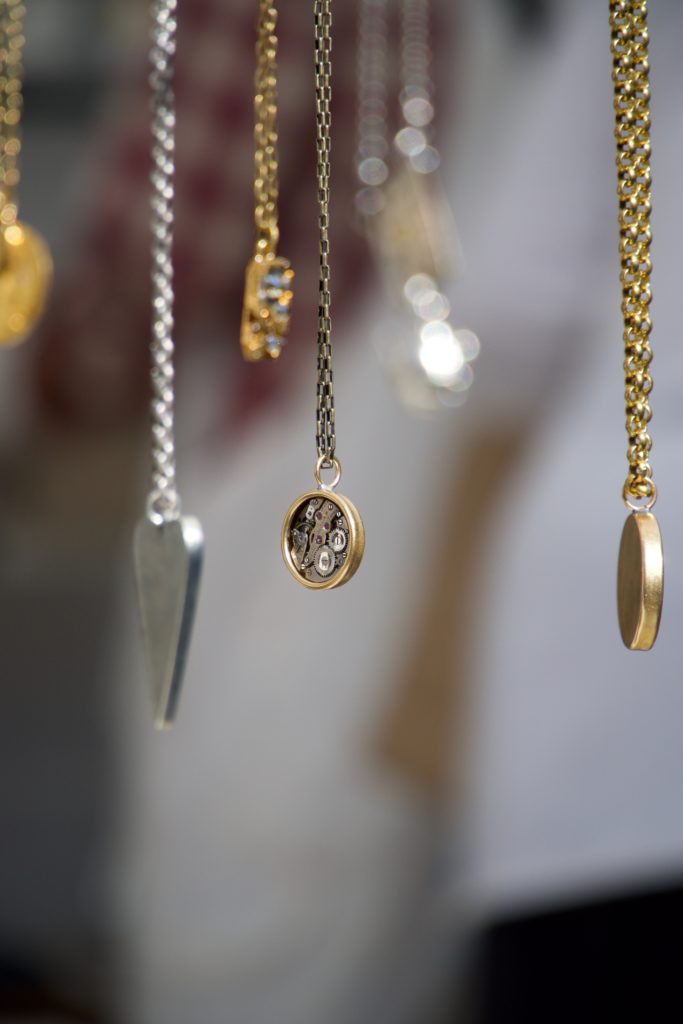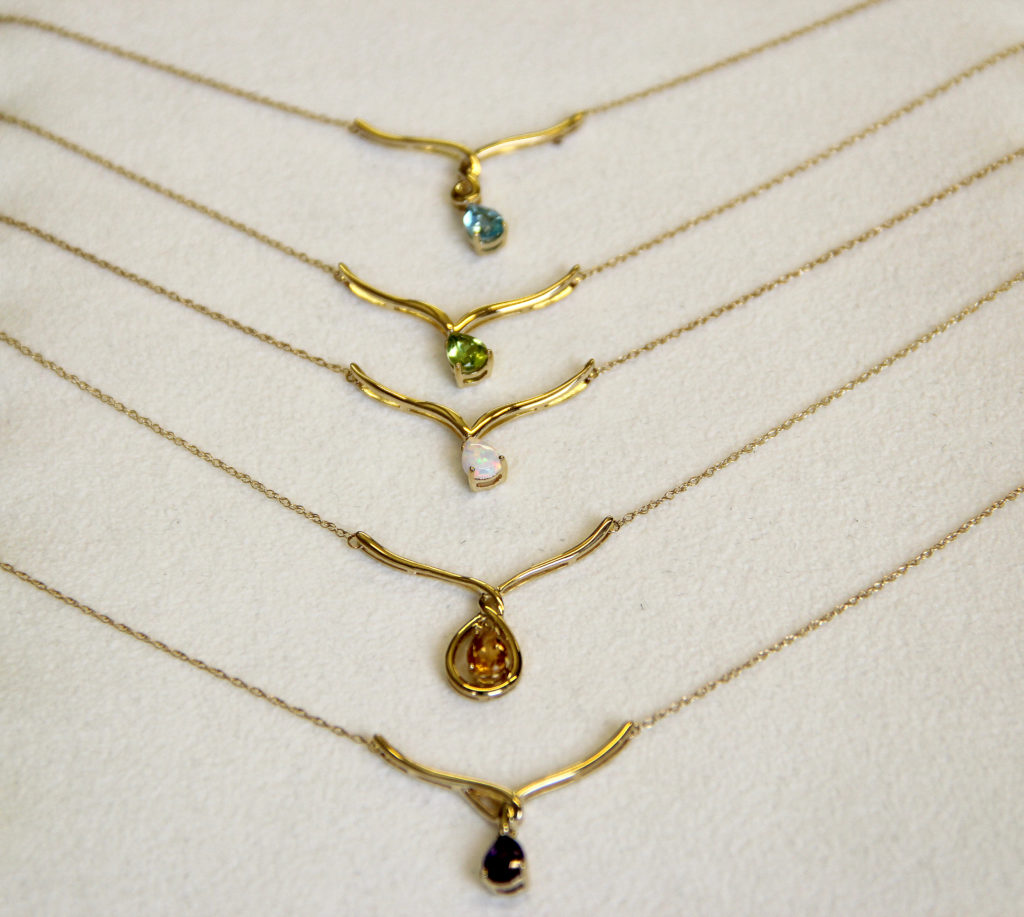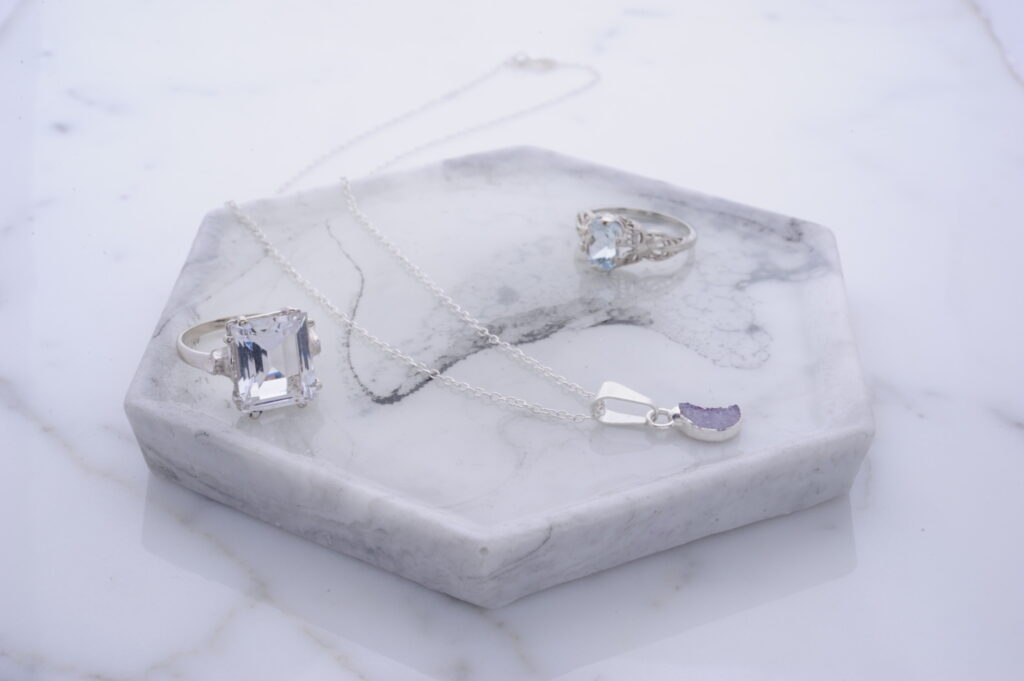9 Ways Not to Clean Necklaces
Written by Serena Norr
January 29, 2018

You have a drawer full of jewelry that you’ve been too busy to clean. It’s a Saturday afternoon and you’re scouring Pinterest and YouTube for the best method on how to clean necklaces. Before you dive into this DIY project, be sure that your chosen concoction isn’t going to do more harm than good to your precious pieces. To help you out, we're sharing 9 ways that you should not clean necklaces. Read on for more…
How Not to Clean Your Necklaces

1. Toothpaste
Toothpaste is often considered a great cleanser due to ingredients like baking soda and other natural cleansers. Realistically, metals like gold and many gemstones are not hard enough to withstand being cleaned with toothpaste. Diamonds are some of the only stones that will not scratch if scrubbed with your favorite brand. Instead, select cleanser that is appropriate for the particular gemstones in your necklace. Other metals and stones may also be damaged with toothpaste; consult your local jeweler with specific questions.
2. Boiling Water
Some people are under the impression that cleaning jewelry with boiling water is similar to the process used at a jewelry store. This is false; heat and sound waves are used instead, and never reach a temperature as high as boiling water. Boiling water can cause metal settings to expand and loose gemstones to fall out or become partially dislodged. Heating with boiling and promptly cooling with cold water can cause gemstones to crack or become damaged, as well.
3. Alcohol
Alcohol is known widely as an antiseptic. However, it can leave coatings on metals and gemstones. Some gemstones are water based, and alcohol dries them out to the point of cracking and damaging. The substance is also harsh enough to damage costume jewelry simply through its abrasive quality. There may be components of jewelry cleaners made from different types of alcohol, but the substance by itself can be particularly harmful.
4. Chlorine
Chlorine is an ingredient in most pools and some household cleaners that comes in contact with necklaces more than it should. Never use chlorine to clean necklaces, as it can cause gold and other metals to break down, dull, or fall apart over time. This is another especially abrasive chemical that does much more harm than good to all different types of necklaces.
5. Hydrogen Peroxide
There are multiple camps on hydrogen peroxide due to its ability to kill bacteria effectively. However, you should never use hydrogen peroxide by itself to clean necklaces. Similar to alcohol, the product can leave a coating on metal settings and on gemstones. It can loosen gemstones, tarnish metal, and work against the cleaning process as a whole.
6. Plain Water
After reading about alcohol, chlorine, and hydrogen peroxide, you may be encouraged to be as gentle as possible with jewelry. Plain water is just about as gentle as it gets—or is it? Depending on your water source, you may have extra fluoride, iron, or other additives, vitamins, and minerals that can discolor or damage your necklaces depending on what they are made from.
7. Ketchup
It is widely known that ketchup is a household copper cleanser. Necklaces are rarely made from copper and can be damaged by the amount of acid in ketchup. Furthermore, different brands of ketchup contain different mixes of ingredients and additives. The measure is inconsistent and you’re likely to damage your jewelry.
8. Paper Towels
When you are cleaning necklaces, always opt for soft, microfiber cloths rather than paper towels. These all-purpose household goods can leave tiny scratches on your jewelry when washing or drying. Microfiber cloths or towels will offer all the same absorption capacity without the rough edges, corners, or texture. Some papers towels are softer and less likely to leave scratches. However, these are the same styles that are more likely to come apart and leave lint or pieces in your necklaces. Clasps are particularly susceptible to this.
9. Bleach
Some articles recommend bleaching jewelry so that all bacteria is killed and you don’t have to worry about germs being caught in small spaces, especially if you wear a certain necklace day after day. Bleach is not a recommended cleaner. This is arguably the harshest chemical mentioned, and it is also capable of leaving a coating on your jewelry. It can weaken alloys in metals and cause gemstones to become discolored.
If all of these options are ways not to care for necklaces, how should you clean them? You can always take your pieces to the jeweler in order to be cleaned thoroughly and harmlessly or to ask questions about how to clean necklaces.
Additionally, there are specific cleansers available at a variety of venues for cleaning specific types of jewelry. Be mindful of metals, stones, and settings when you are choosing a cleanser, and do not be afraid to buy more than one in order to suit a particular piece appropriately. Taking time to clean your necklaces the right way can extend longevity and keep them looking fabulous for the longest amount of time possible.


